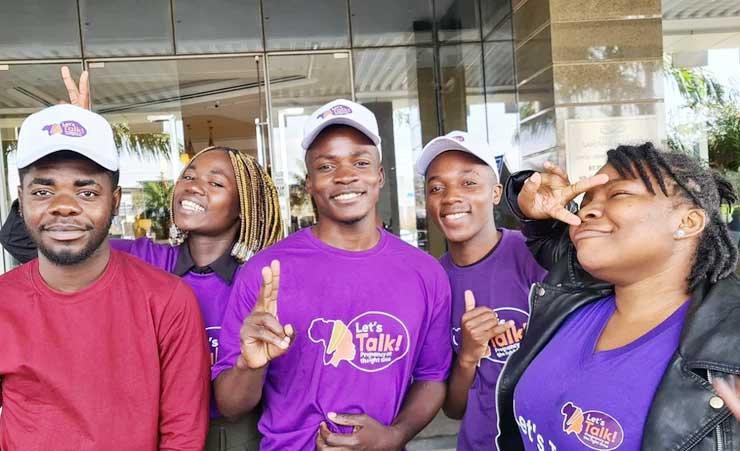
BY STYLE REPORTER More than 40 university students have been working together on two mobile applications that will support access to sexual reproductive health and rights information and services for tertiary education students in Zambia and Zimbabwe.
UNESCO organised two simultaneous workshops that gathered more than 100 participants in Lusaka, Zambia and in Harare, Zimbabwe in the context of the Our Rights, Our Lives, Our Future PLUS (O3 PLUS) project.
These two days of intense work on the mobile applications allowed students to collaborate with sexual reproductive health and rights experts; higher and tertiary education representatives; IT teams; government, UNESCO and CSOs representatives.
The applications will provide a solution that offers a friendly and safe space where young people, especially young women, can freely access sexual and reproductive health and rights information and improve their knowledge of sexual and reproductive health issues.
In addition, students can also get support and services in real-time through services such as counselling chat, SOS messaging and calling in.
The students selected the names of the mobile applications during the first meeting organised earlier this year; it will be “Future +” in Zimbabwe and “Ownu” in Zambia.
The students also selected topics that are important to them, including alcohol and drug abuse; sexual and reproductive health; general health; mental health; safety; HIV and Aids and career and financial management.
The guiding principle for this initiative is “designing an app with students and for students”, making them an integral part of design, development, beta testing, ongoing testing, feedback collection, and IT planning.
- Chamisa under fire over US$120K donation
- Mavhunga puts DeMbare into Chibuku quarterfinals
- Pension funds bet on Cabora Bassa oilfields
- Councils defy govt fire tender directive
Keep Reading
Fadzai is studying at Chinhoyi University of Technology in Zimbabwe, and sees the app as an opportunity to improve mental health on campuses.
“I am so excited about the “Future +” mobile app because it will focus on many important topics for my fellow students,” Fadzai said.
“Today, I am particularly excited about contributing to fighting peer pressure. In my opinion, toxic peer pressure affects many university students, and it can be linked to mental health problems and depression, leading to suicide. This app will help students discuss and cooperate to stop all these harmful practices.”
Nora is pursuing a diploma in biomedical engineering at Evelyn Hone College in Zambia and has been collecting feedback from students.
“They want somebody who understands what they go through,” Nora said.
“They need a place where they talk about pregnancies, relationships, sex, contraception, hygiene, gender-based violence and any problem related to relationships.
“They just want somebody safe to talk to, somebody who will not talk to them badly. They need a safe space and “Ownu” App could offer this space to them.”
These applications are developed in collaboration with higher and tertiary education institutions in the context of the O3 PLUS project, led by UNESCO.
That project seeks to ensure that young people in higher and tertiary education institutions in the East and Southern Africa region realize positive health, education, and gender equality outcomes through sustained reductions in new HIV infections, unintended pregnancy, and gender-based violence.
Working closely with relevant regional structures, national ministries, higher and tertiary education institutions, and key partners, UNESCO supports innovation in access to life skills-based sexuality education and sexual and reproductive health services for higher and tertiary education institutions students.
UNESCO is advocating for policy and practice changes to make campuses safe and to create inclusive learning environments for students and staff.










